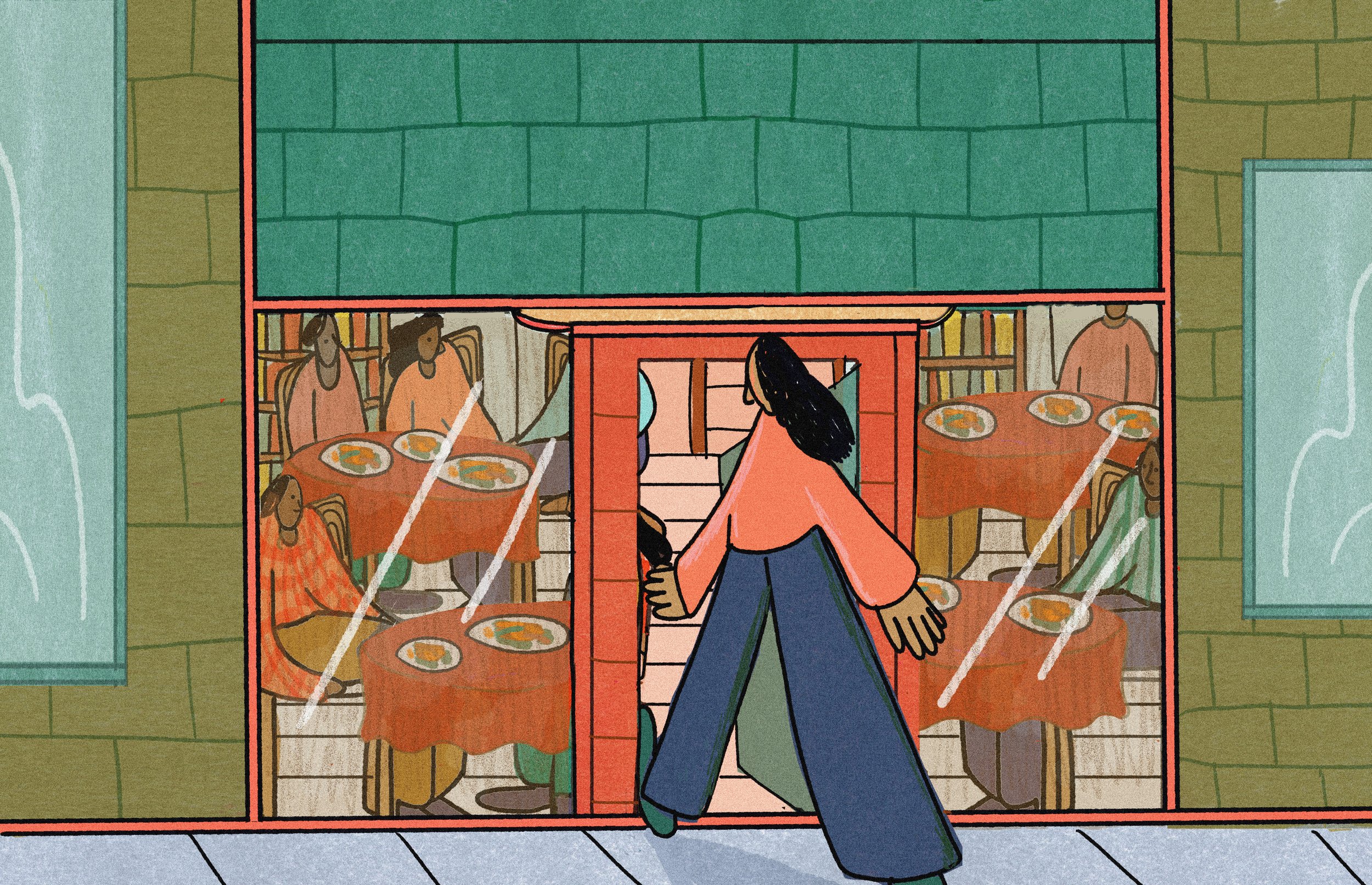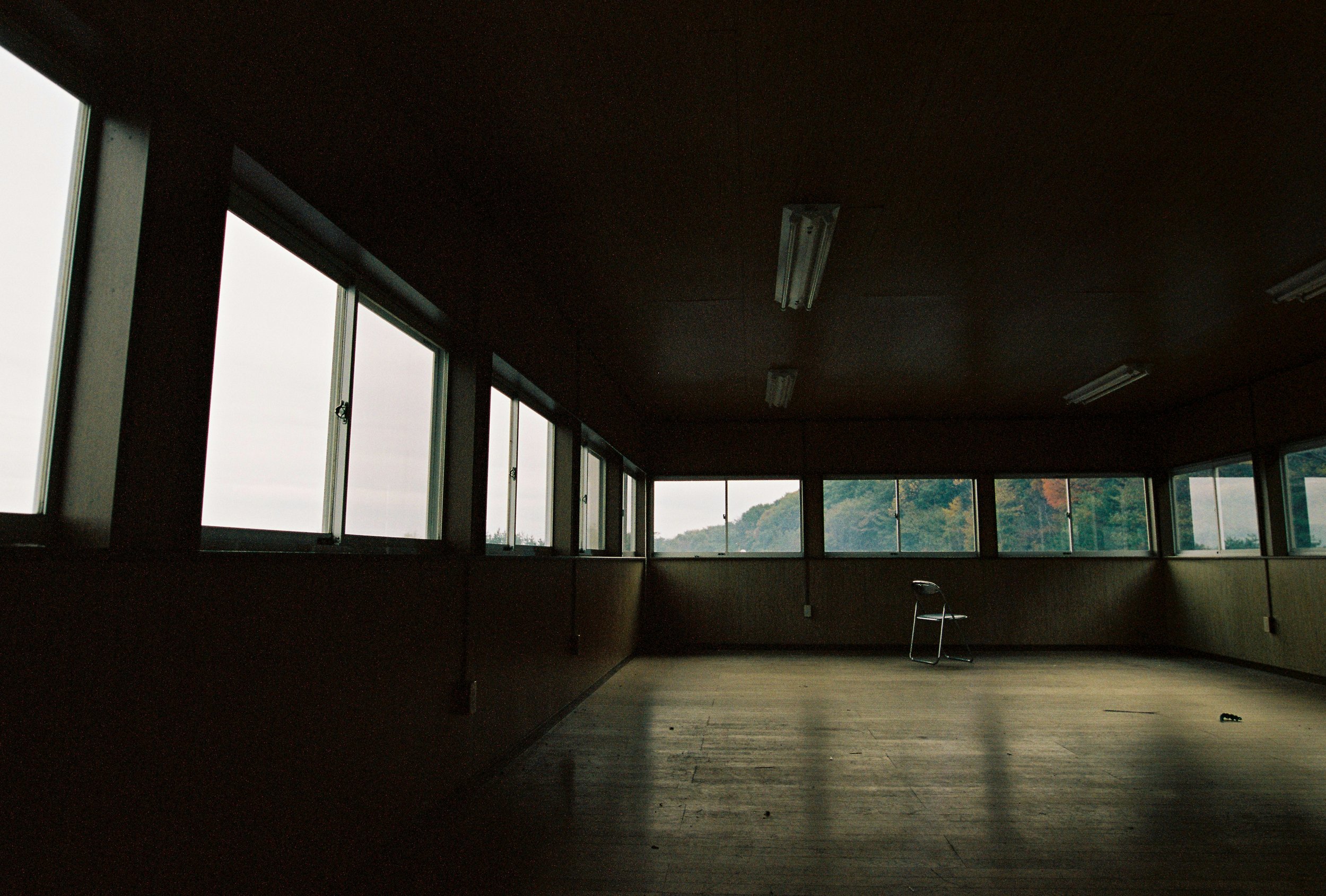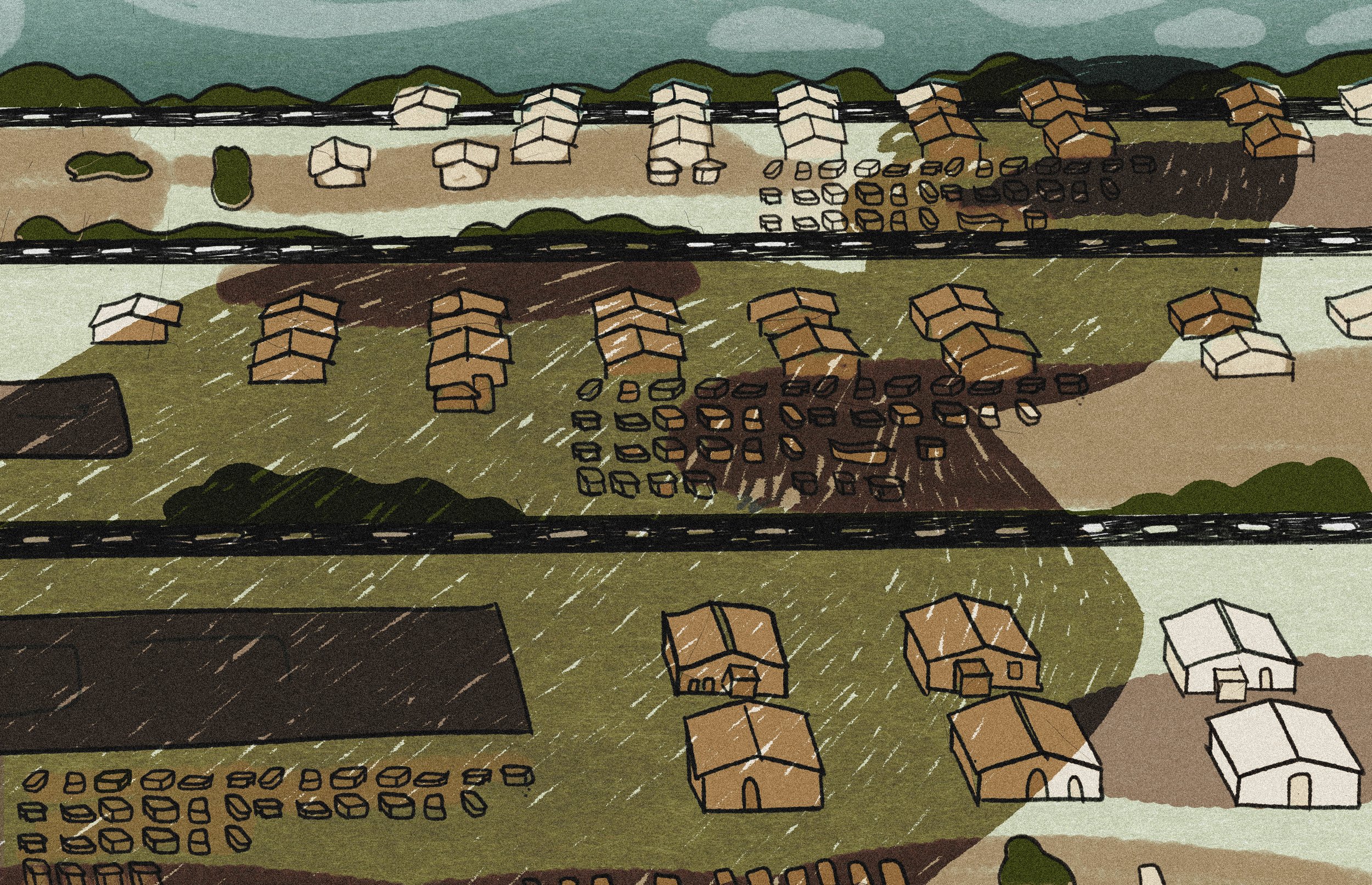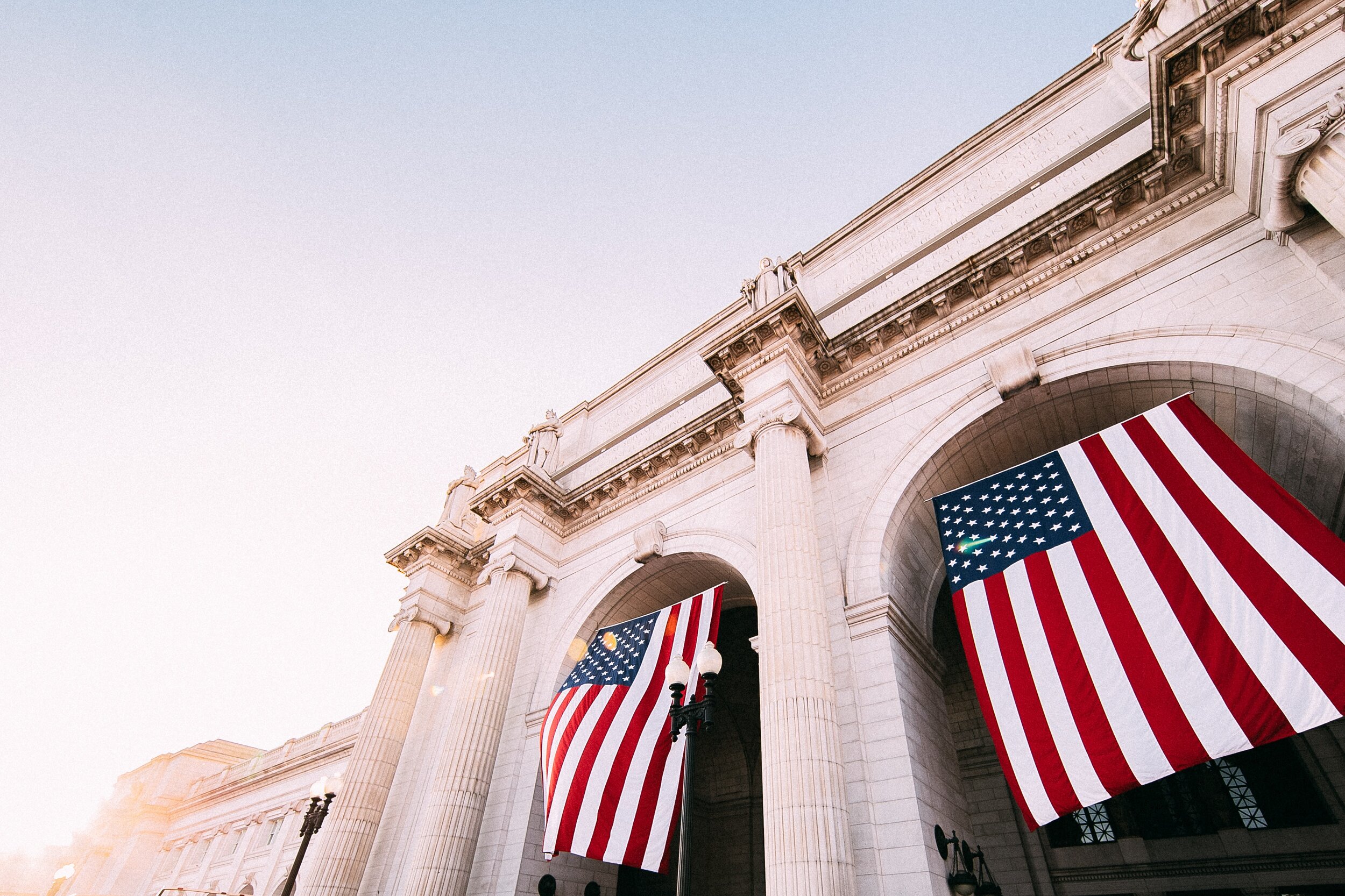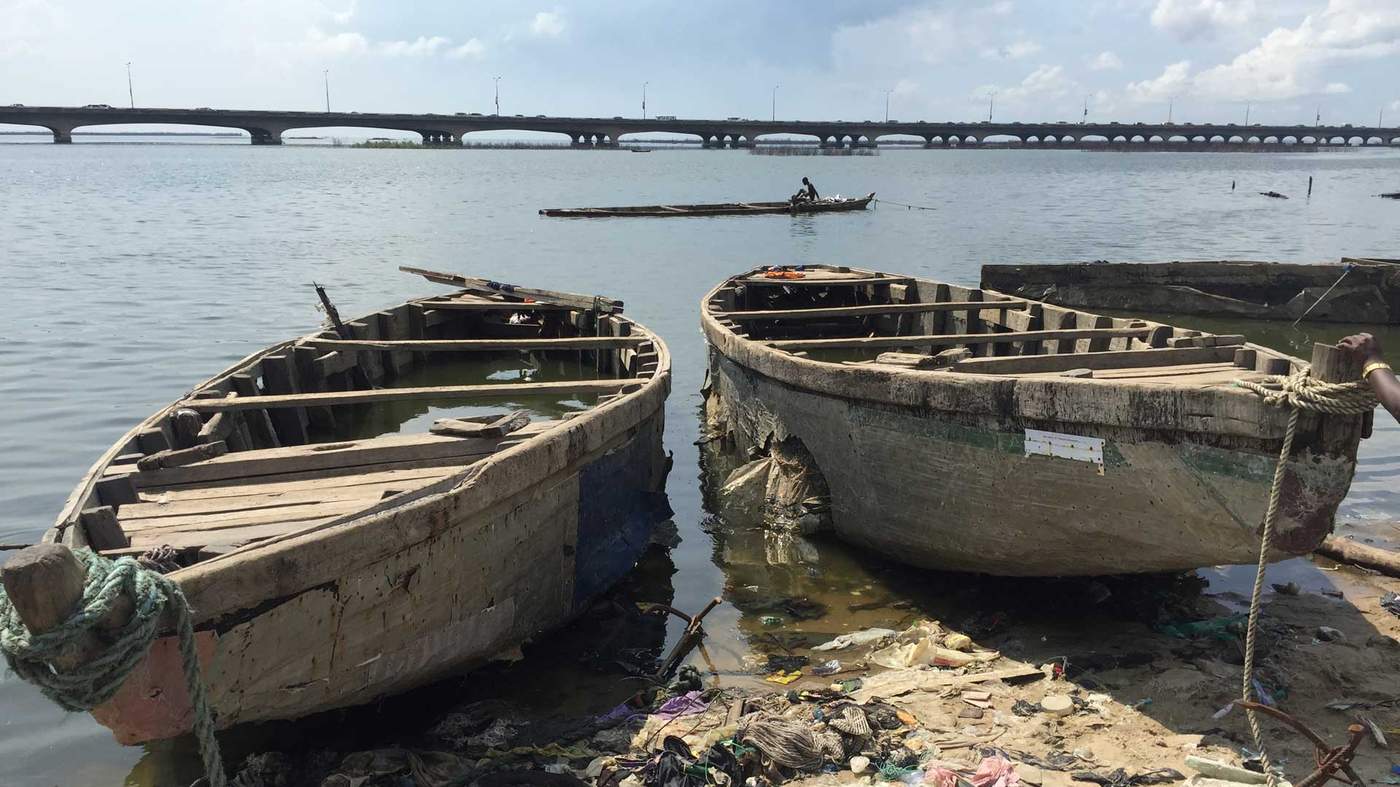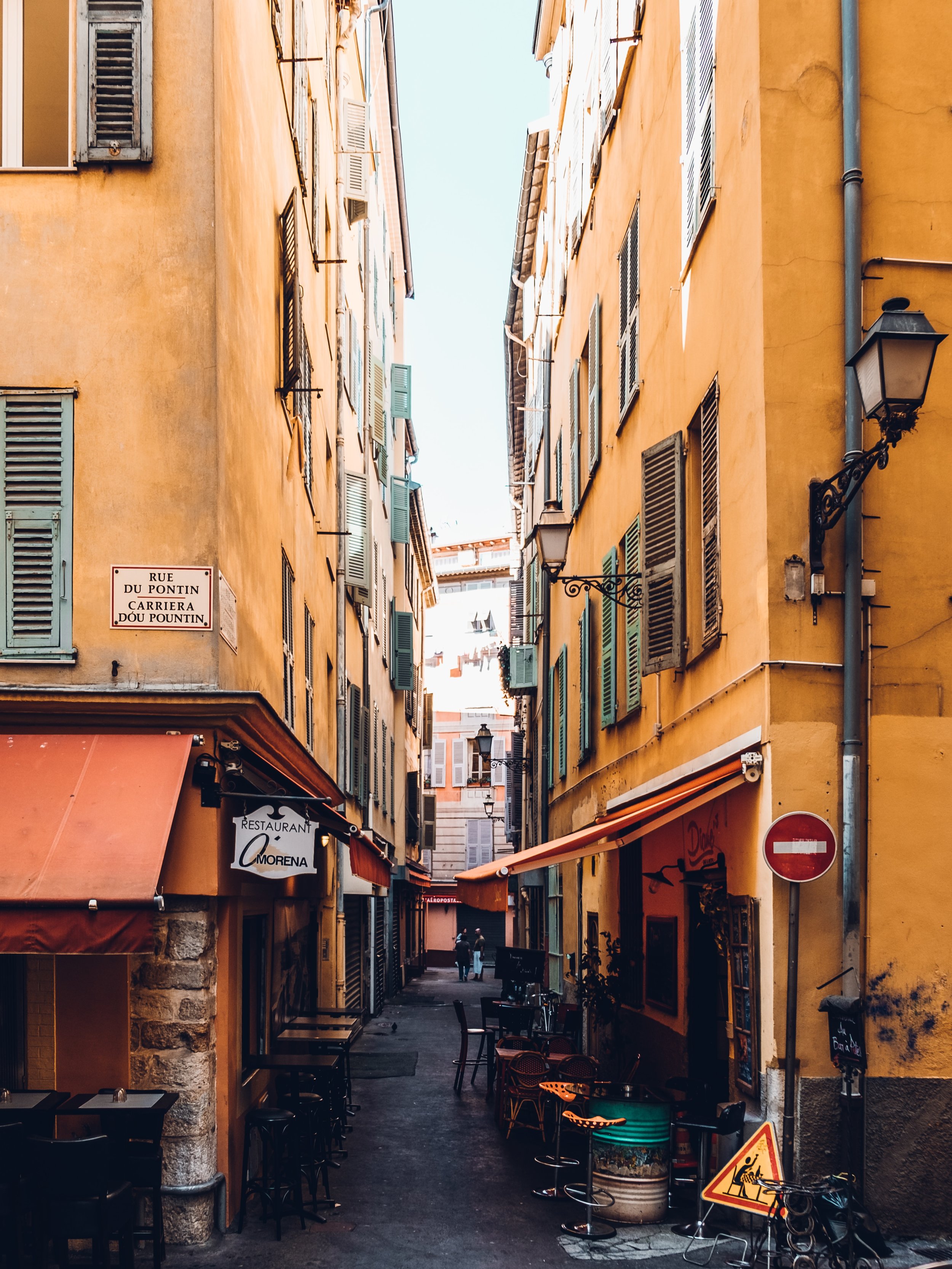Bad Witness: What I Didn't Say About Reporting on Chinese Christians in Kenya
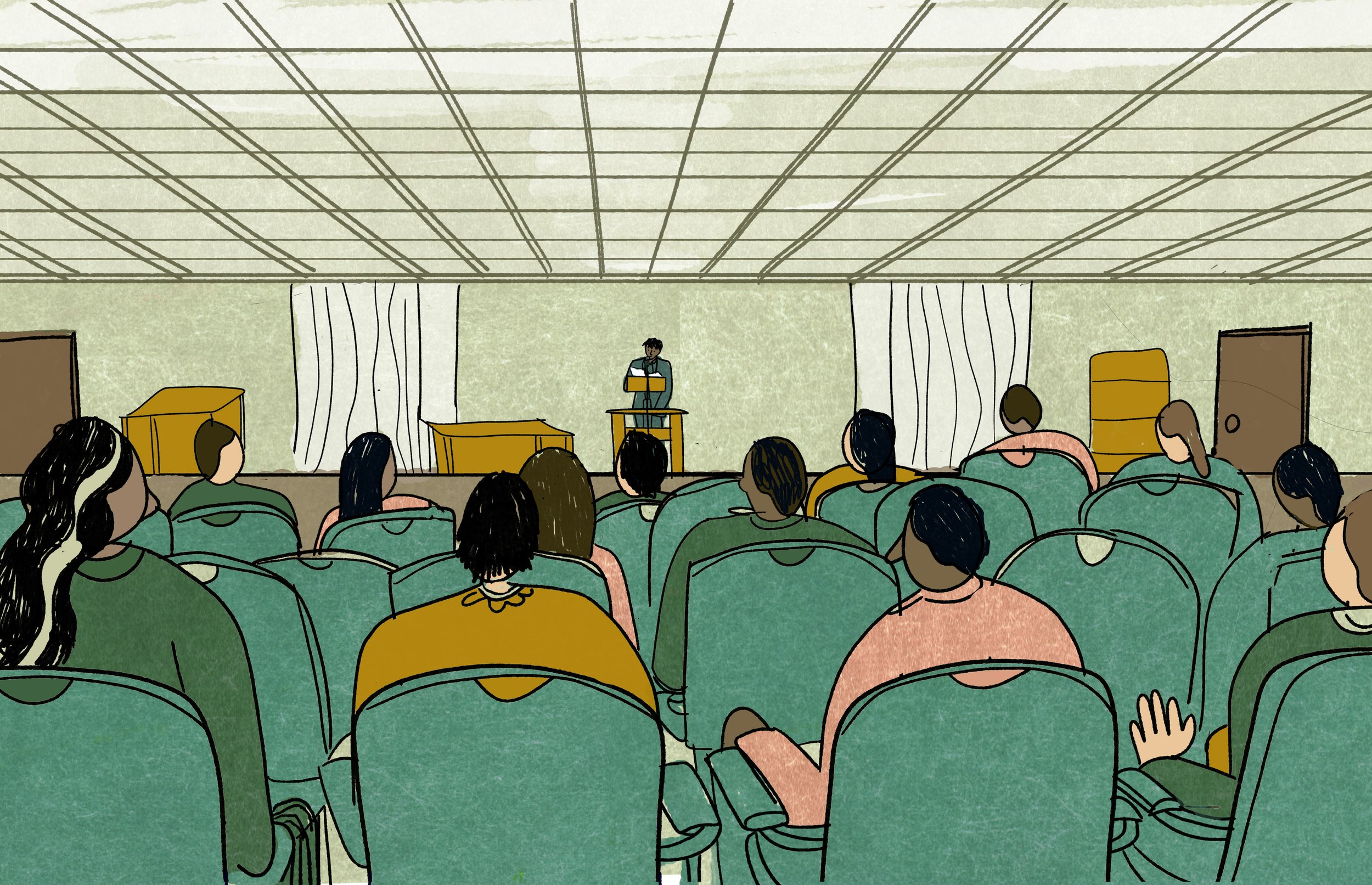
I was born into Christianity as I was born into America. In my childhood, there was the church and the diaspora, and I could not imagine one without the other. I grew up in Chinese immigrant churches, where the vast majority of members were the first in their families to leave their home countries and to find Christ, usually in that order. I took these two things as inextricable, that salvation happens in borderlands and transit, that to sow seed in good soil, first the seed must be carried by wind or water.
When my parents were young grad students at West Virginia University, other sinophone students and professors—in those years, mostly from Hong Kong and Taiwan—invited them to Bible study in Mandarin. My parents’ vulnerability and loneliness in a new place made their hearts good soil for the Gospel. They became Christians and in doing so, like a railroad switch, set themselves on a track doubly apart from their parents’. They learned to pray in Mandarin, in America.
The first church I ever visited in Nairobi was a Chinese church just down the street from my apartment. For years I had passed by its sign with a flame-and-cross logo and characters I could not then read. Inside the compound stood a Kenyan church—stained glass, stone walls, tall steeple. The Chinese church was in an auxiliary building off to the side. It reminded me of the Maryland church I grew up in. For years, until the congregation had pooled enough money to buy a church-church, we met in an anonymous unit in a brown suburban office park, always empty on Sundays save for us.
I settled into the back row. The pastor, a short, stocky man with a Jiangnan accent, was speaking with his entire torso, punctuating every sentence with a rhetorical question that carved out silences. During these silences, we heard thumping upstairs, probably Pentecostals. The pastor wore an enamel lapel pin, except where normally there would be a flag or cross, he had an airplane. The means by which the Word travels.
When I visited that flame-and-cross church, it was 2019. I was a much younger journalist, and I had been assigned to write a story about religion and the growing Chinese diaspora in Nairobi. After visiting several places of worship, I ultimately decided to write my piece about Jehovah’s Witnesses who were learning Mandarin to minister to the Chinese diaspora in Kenya. Railways, superhighways, bridges, and other sorts of infrastructure had come to define China’s relationship with Africa, and the stories that emanate from those projects, which often take for granted that it’s only capital that brings together Africans and Chinese, are often told in the fast-forwarded way the news feature format demands. But there are more registers than that. Infrastructure can link the Chinese diaspora—not only the workers who build but the migrants who follow—to questions of salvation. It can carry seeds of good news. I wanted to write a story in this register. It was the first story I wrote on “Kenya–China,” which has since become somewhat of my beat. It was my first narrative longform piece and the only story I’ve ever written that made it into print.
It is also the only story I have never been able to bring myself to read again, except to prepare for writing this. When I finally did, the words dragged like gravel across my eyes, and I breathed relief when I saw the blessed end mark. I still live with the doubt that came from that failure.
I cannot explain why I am writing this in any other way except that it feels like penance.
*
The person who introduced me to the Mandarin-speaking Jehovah’s Witnesses in Nairobi was a Chinese anthropologist who, in my final story, I called “An.” We met through a happy accident: I had forgotten my notebook at a China–Africa conference in Nairobi we’d both attended, and she messaged me on Twitter to return it to me. We met for dinner and spoke at length about what it was like moving through Kenya as young Chinese women, and at some point she told me the story of how she came to attend Chinese-language Bible study here. The first time she met a Jehovah’s Witness in Kenya was outside a Chinese supermarket. Two neatly dressed Brothers stood alongside a cart of Mandarin tracts, and one of them, a Kenyan, spoke to An in Mandarin. She asked him how he learned the language, and his response led her to the JW Kingdom Hall that very afternoon.
Later on, An attended Bible studies led by Daphne Butler, a Tanzania-born white African who began learning Mandarin in 2007 with other members of the JW Nairobi congregation. In the early aughts, it became clear that, in the trail of Going-Out infrastructure projects in Africa, Chinese people were migrating to Kenya in greater numbers. Seeing an opportunity to reach out to them in a country of religious freedom (unlike the PRC, where Jehovah’s Witnesses are banned and meetings take place underground), the Nairobi congregation set up Mandarin language classes in the form of ambitious pinyin-based bootcamps focused on the vocabulary of spirituality. Just over a decade later, Daphne was able to lead Bible study with An and her friends in Mandarin.
An was interested in studying the Bible but at an academic distance. In one sense, she saw the Bible as a foundation of Western literary tradition—the same way the Four Books and Five Classics was in China, she told me. But, an anthropologist after all, she also wanted to observe how people wrap their lives around a holy text. I suppose in a way, I did, too. Observer to observer, An shared Daphne’s number with me.
When I cold-called Daphne about interviewing her for the magazine piece, she was skeptical. Witnesses are often misrepresented in the media, she said, and some Chinese Christians in Kenya had previously been outed by sloppy journalists. But I played all my cards. I was Chinese-American, I said, and my parents followed a similar path to conversion to those at the JW congregation in Nairobi. I didn’t use the word “proselytize”—that was something outsiders used on us. I was no longer a Christian, I told Daphne, because I had so many doubts, but I likewise had many doubts about atheism. We could speak in first-person plural together.
She agreed.
Over the next couple weeks, Daphne did much more than grant an interview. She drove me to meetings at the Kingdom Hall in a rickety Jeep with old bones, she led me on a tour of the entire campus, we sat together for hours with a couple of elderly American missionaries who lived in a modest dorm on campus, we walked through the JW cafeteria, the warehouse where literature is printed, the offices where material is translated into indigenous languages. Though I disagreed with her politics, I remained polite, grateful, but neutral—I was not too green to know that she was, after all, a “source.” Still, our mutual generosity met seamlessly. When I told her that Mandarin would be the single lifeline to the world of my grand-father, my last living grand-parent, she encouraged me to learn and ask him questions, saying that one of her greatest regrets was not having asked her own Granddad more about his life. Our relationship resembled ones I had with the many church aunties who raised me.
The first time we met was in her house, an orange-faced bungalow brimming from every exterior surface with flowers. The inside of her home was lined with a combination of safari kitsch and East Asian paraphernalia. Witnesses always move in twos, and Daphne’s friend—whom I later anonymized as “Zhou”—was with her. Zhou, the third Chinese person to be baptized as a Jehovah’s Witness in Kenya, was one of the language instructors at the Mandarin language program. Her story of “coming into the truth” began when her husband came to Kenya in the 90s for work. In Nairobi, he met some Witnesses and eventually started telling Zhou about “good news” and “everlasting life.” Zhou was working back-breaking night-shift hours at an ER in China and waved this away, but once she moved to Kenya and began studying the Bible, everything changed.
I was familiar with the arc of such testimonies. My parents and other members of my home church had found God when they left China, where before they had only—in both my parents’ and Zhou’s words—“worshipped Mao Zedong.” But immigrant stories can be deceivingly linear, with positive slopes. When going from “unsaved” to “saved” tracks neatly with going from China to America, a before-and-after comparison emerges, and of course, after is always better. The China I knew—constructed through the eyes of those who lost a lot to leave it and perhaps needed to believe they made the right choice—was a dark China. To an American-born Chinese like me, they spoke of their old home as a tragedy teeming with two kinds of lost souls: amoral survivors morally bankrupted and malformed by a bloody Cultural Revolution, or blank, unreached “natives” who had never heard of the Bible.
“When people treat one text as holy, they’re always trying to connect their self, their life, to that one sentence, word, or term,” An told me. “Living like that is what I’m interested in.” Living like that: In other words, the way I had grown up, committing entire chapters of the Bible to memory, tucking verses on cards into my violin case and other crevices of everyday life, tracing the etymology and cultural harmonics across Bible translations of a single word like “love,” “daily,” or “grace.” As An spoke to me about how totalizing a single book was for these Jehovah’s Witnesses, I watched myself meeting with my preteen Bible study cell group as an anthropologist would: Young girls meet regularly with agemates as a form of collective accountability to adhere to the tenets of Biblical conduct. There we were, specimens of religious devotion. Looking at myself through An’s gaze was like seeing through a pair of glasses the wrong way, everything in miniature with depths of field all wrong, ungenerously sped-up, dizzying if you look too long.
But I could also see that An bristled at how Witnesses and other Christians, like those in my home church who elided America with salvation, infantilized those like her from mainland China. She once asked me, “Don’t you feel like that narrative about China as a newborn, unreached, is very colonial?” I paused. I could see her frustration with outsiders equating a lack of free speech with a lack of ideas, a lack of religious freedom with a pitiable naïveté, with Christians casting Chinese people as specimens of state devotion. Get out from behind your lens, An could have said. “Not to be condescending,” she told me, “but it would be super interesting for you to live in China for a while.”
Incidentally, I did, though not for that reason. Convinced that I wanted to do reporting in Mandarin, I enrolled in a semester-long intensive Mandarin language course in Beijing and traveled there not long after I finished my reporting for the JW piece. Daphne sent me off with nice emails containing little updates on those we’d met along the way.
*
I had faith in the medium of longform narrative journalism. I felt that there was an inherent beauty to seeing other people with the express intention of making their complexity legible to a stranger. In my mind, “hanging out” journalism was closer to anthropology than reported news. Rather than a first rough draft of history, this medium felt more like meditations on history’s faintest echoes, heard through the tiniest of sounding boards—a single individual—which could be resounding and universal if you got real close and listened carefully.
“Looking at myself through An’s gaze was like seeing through a pair of glasses the wrong way, everything in miniature with depths of field all wrong, ungenerously sped-up, dizzying if you look too long.”
But the conceit of this kind of reportage, as Luke Mogelson writes in “The Dark Side of Longform Journalism,” can be murky. This is precisely because what it values—“weird and true detail, an unsettling immediacy, the otherwise forgotten humor,” as he writes—can only be observed in person, and when we feed what sometimes amount to the worst moments of others’ lives into the machine of our craft, it begs questions so noxiously honest that they rarely surface beyond our subconscious. Mogelson writes:
“While reporting my last piece, in Iraq, I watched a fatally wounded man get dragged into a street and taunted and abused until he died. In a sense, the ignominious killing of that man was exactly what I’d been looking for. In a sense, I was happy to have found it. I knew, after all, that it was going to make my article better. That’s why I pushed my way to the front of the crowd to record it with my phone: I was anticipating the formal challenges I’d encounter when I later sat down to write.”
Beneath the formal beauty of narrative journalism is the reality that our raw materials are living humans; the entire point is to represent them and give them, as a rule, nothing in return.
Why do it then? For Mogelson, there is “some essential purpose and value to adding the lives of individual people to the record”—something sacrosanct, so to speak, about the archive. Even if the people in his stories exist on a separate plane to his discursive mission—after all, his characters feel no more human after being “humanized” by a well-written story—he can live with those problems: “They’re problems eclipsed by my faith in the importance of a certain kind of record.”
I wanted to get this story on Jehovah’s Witnesses right. Just as I could earn Daphne’s trust where others could not, by dint of my identity, I trusted that I could write universality into a story that others could only shrink into specimens. I wanted to make the diaspora story sing, retelling an old story of finding God or Him finding you. I wanted people to see Mandarin—this language that I, too, had just committed myself to—as a vector of the spirit, not just a blunt tool for doing business with China or an inroad of Chinese neocolonialism in African schools. This language could dial in to a new spiritual frequency, as it did for both Zhou and my parents, whose dislocation cracked them open to God, or for Daphne and other Jehovah’s Witnesses who forged a spiritual tool out of a challenging, non-phonetic language that bucks foreigners off its back.
I wrote the piece as I would any reported feature, without myself as an explicit narrator, but with what I trusted to be an “invisible eye,” some default journalistic stance that reflected my neutrality. Yet even after I transfigured people—Jehovah’s Witnesses—into formal elements, points along a linear narrative one could play with in a Google Doc, my editor felt I wasn’t filling out the role of a journalist the way I ought to. Magazine writing, he explained to me, gives us more leeway to be “juicy” (maybe he said “spicy,” I can’t remember). True, there was no obvious tension in the story, no power to speak truth to here, no harm to be revealed and proven—and so he began to circumscribe harm where the story demanded it. His thinking was clear: Narrative demands friction. Every agent in the story must have a negative shadow. Characters must ultimately be made legible to the farthest Western reader. A lifetime of walking by faith, not by sight, prepared me to accept that whether that was right or wrong was not for me to parse. I played along, letting him shrink my story into a diorama and write into it a perspective so different to my own that it hardly mattered whether Daphne had interacted with me or an atheist she would have hung up on two minutes into a cold call.
The editor added juice (or spice), as denoted in italics below:
With a global membership of over eight million, Jehovah’s Witnesses have attracted the ire of authoritarian governments—to say nothing of any suburbanite with a doorbell—for public evangelizing and targeted, highly organized outreach campaigns.
Wherever there are Chinese, there are Witnesses. Fresh souls like plankton to a whale.
The group maintains a strict internal hierarchy that shapes members’ lives—which doesn’t much help the presumption of cultishness—and indoctrinates them for the missionary aspects essential to the faith: save as many souls as possible before the final and unavoidable battle of good and evil, saved and unsaved, at Armageddon.
Aside from the unbidden Japanese and British Witnesses at An’s door, these days, Kenyan believers, pedigreed by generations of passed-down Christianity, are learning Mandarin to convert the incoming, “Godless” Chinese.
I pushed back on many of these additions because they infused my words with a fundamental skepticism or disdain for Jehovah’s Witnesses that I did not have in the context of this piece. In the end, some got cut and some stayed, and the piece was published. In service of the medium, we removed the implicit observer—my gaze, my doubts—and, in doing so, lifted the subjects I observed into a very different kind of archive than the one I had imagined. My readers saw Witnesses in Kenya; they didn’t see through what lens they saw them, and, holding a paper magazine with the heft of objectivity, had no reason to consider that at all.
Still, I didn’t hate the article. I was inured to my voice being distorted and my name still slapped on top—small indignities to climb a ladder, the top rung of which must have been the freedom to write ten thousand words in my own voice. This was just how the medium worked, and I was a believer.
But I was wrong. One afternoon in Beijing after a day of classes, I returned to my apartment, opened my phone, and saw the abridged beginning of an email from Daphne: “Had a look. Straight up, it’s pretty bad...but I was probably naive to think it would be anything else.”
My body clocked it first. I felt bile rise into my throat and my chest seize as I opened the rest:
“I guess it wouldn’t sound too interesting if we did not fit the stereotype of being a cult, dumbed down, simplistic people who have nothing better to do than look for Chinese people to share the good news with…. You sounded to be a person who has integrity, but this article did you no justice, very sad. I even wonder what was the point? To bring reproach on Jehovah’s Witnesses and expose them to more profiling and misunderstanding and ridicule?”
“For the first time, I saw the mechanics of my craft laid bare through the eyes of the individual from whom I’d extracted my raw material.”
Though nearly all the words she had highlighted as problematic were my editor’s additions, what mattered was that, though I was not happy with how it turned out either, I didn’t think it was that bad. For the first time, I saw the mechanics of my craft laid bare through the eyes of the individual from whom I’d extracted my raw material. I was blind to my own faith: Didn’t she know that the medium works in mysterious ways, that sometimes we must let go of our own words? Daphne was shocked less by how she was portrayed than by how the person she’d sat next to in the pews had been completely evacuated from the page, with nothing but a byline to prove she hadn’t totally hallucinated goodwill. The language my editor used—and which I had accepted after all—was illegible in the reality Daphne and I had shared for weeks. Much is lost in any translation, but what do you call it when you can’t see the author anymore? The author you’d trusted?
If it were not for writing this essay, I would have never opened that email again. Journalists need thick skins, but this barb went right through and never came out. If Daphne were wrong, I wouldn’t have remembered her words. But I must have known she was correct, and I must have felt like I deserved whatever I felt, because I never deleted that email. This was the first time I felt like a native informant—of my (former) faith, of the Chinese diaspora. A bad witness.
I apologized profusely. There was nothing else to do.
In the end, Daphne said she forgave me, but in her final email to me, she wrote that if my work was making me do something bad—gaining trust with a “we” but writing “them”s into the story for others to gawk at—then perhaps I should switch jobs.
She had cracked my faith in the medium. I doubted.
*
In her book The Vulnerable Observer, anthropologist Ruth Behar considers the central paradox of any kind of witnessing: to get as close as you can but never too close. In 1987, she traveled for a field trip to Santa María del Monte, a Spanish village of approximately 100 elderly peasants. Behar’s research focus was death and memory; rapid industrialization and a rural exodus left the Spanish countryside “one big cemetery” for the elderly peasants left behind. Abandoning ground burials for austere, concrete niches, they had built their own death houses that did not need to be taken care of by future generations, whose eyes had long been turned away from the countryside.
However, at that same time, Behar’s grand-father—Zayde, as they called him in Yiddish; he was a Russian Jew who had immigrated to Cuba—was dying of cancer in Miami. Five days before Behar was meant to leave Spain, Zayde died. In Spain, Behar grieved in parallel for her elderly Spanish friends waiting to die, and for Zayde. But, as she thought of the last time she saw Zayde, laying in an armchair on the balcony of his condo, reading the Torah in Hebrew to himself, it occurred to her this reading was something she could never do—not without glancing at English translations. If there was anyone in Santa María with whom she should identify, it would be the cavalier grand-children who were absent and disinterested in their elders, allowing them to die in body and in memory.
Propelled by the “intense regret and self-loathing” she felt for leaving Zayde behind, Behar wrote both stories into one another, a meta-reflection on the quiet tragedy of forgetting how to say goodbye, and a “double mourning” as anthropologist and grand-daughter. It was the first time Behar wrote ethnography in a vulnerable way, and she described it as “the most charged moment of empathy for the suffering of others that I have ever experienced.” Her vulnerability was not an embellishment to the study, nor a confounding factor to be recalibrated with better methodology. It was its center of gravity, revealing that the parallel grief and alienation she felt as an anthropologist rhymed with that of someone in diaspora.
Behar rejected the premise that an anthropologist generates knowledge by excavating pieces of truth from the field, smooth and sure, to bring home. Rather, it is what haunts the observer along the way that produces anything close to truth, and yet none of it has much to do with certainty.
How could the story I wrote about Jehovah’s Witnesses be anything close to “true” when, for a piece whose only goal was to make one human’s complexity legible to another, those in it reacted with such pain to how they were drawn? I had more faith in my editor and the medium in which we collaborated than I did myself.
Rather than the printed story seen through an invisible eye, the true fruits of my observation were in fact images of a different register, not smooth and sure at all, but diffuse, vague observations that begot emotions with nowhere to go: the rhyming arcs of my parents’ and Zhou’s salvation; a sad, sorry China in retrospection; An and me, two young observers in Nairobi cursed with a low hum of paranoia about how others perceive us; what a foreign language can do to a life. Daphne, Zhou, An, and me: four women with vastly different relationships to a nation, a language, and a theology—yet from their superimposition emerges a picture of something meaningful. Had I had the wisdom and humility to write vulnerably, the moment I realized the demands of the form and the personal stance of my editor would obscure these wobbly, blurry glimpses of truth and distort them beyond recognition—that is the moment I should have killed the piece and started over.
*
During my intensive Mandarin course in Beijing, our teachers asked us what our goals for learning Mandarin were. My rote response: I was a journalist in Nairobi who wanted to be able to interview Chinese people fluently. But I had the sense even then that was only half an answer, because being fluent in a language and being fluent with the people who speak it are different things. My true goal was to be seen by Chinese people as Chinese. But even if I was not ashamed to say that aloud, I did not have the vocabulary then to explain that, though an asymptote can never reach the axis, the only way it can get closer is to approach it for eternity.
My semester in Beijing ended in December 2019. Two weeks after I flew back to Kenya, a cluster of pneumonia cases emerged in Wuhan. In Nairobi, I fell naturally into the urgent news cycle with a clear purpose and audience, no longer mired by questions of representation, truth, identity, self. I wrote about how early test kits worked, about Kenyan students stranded in Wuhan, about medical oxygen supply chains in East Africa.
But the epidemic was racialized, and the specter of sinophobia trailed me. I saw Kenyan political cartoons with human-sized coronaviruses dressed in Fu Manchu garb, and the comments underneath my Tweets were pocked with taunts to go back to China and stop eating bats. I watched a corona scare video of a Chinese construction site office in Kakamega that opens with the cameraman saying, “They’re saying these people have a disease.” Three Chinese men emerge, filmed long range as in wildlife photography. It turned out someone had reported this site because they saw a Chinese man wearing a mask. One of the Chinese workers responded that they had not left the country for months and that the masks were for their own protection.
A video producer at an American publication asked if I might work as a fixer for a story about the tense racial climate in Kenya before the epidemic made landfall here. I said yes. I sent a message to a WeChat group of over three hundred Chinese people in Nairobi, asking, as subtly as my semester-old Mandarin allowed, if anyone had experienced sinophobic harassment. No one responded. One woman grew alarmed and asked what kind of sinophobic harassment was out there. Another user assured her that there was no need to be scared of racial backlash here. I could see her glower at me through the screen: To her, I was at best just another American who made everything about race, or at worst, a journalist who forgot that there is a cost to extracting the raw material I’d deliver to my producer. A cost paid not by me, my producer, or the viewers, but by the community I had assumed I could insert myself into and extract from simply because I could type in Chinese.
Or maybe she had none of those thoughts, and this was just my own voice now.
Some time later, I found myself in the lobby of the Chinese-owned Wuduria Hotel. A manager emerged from behind the front desk. I let Chinese dribble out of my mouth. She said no, there was nothing she wanted to say, and she did not want to be interviewed. I assured her that we would take the necessary security precautions and that this was meant to be, if not sympathetic to, then at least neutral for the Chinese diaspora in Kenya—which is to say, us. As I heard myself saying this, I heard myself saying similar phrases to Daphne. Back then, I had faith in my own words.
The manager looked at me—not with disdain, but with pity. It was then that I realized just how long the long tail of an asymptote is. I’ll never be “us.”
I gave up. The producer paid me the day rate, for which I was grateful. It was a cheap consolation prize for a native informant, and a failed one at that.
*
On a Sunday not long after, I once again found myself inside a Chinese church in Nairobi. This time, I was not there to ask anything of anyone. I was alienated, my sense of belonging in Kenya collapsed daily into streetside jeers of “corona” or worse. I was humiliated, distrusted by the Chinese people from whom I sought stories. I was newly homesick, for the first time unsure where in Nairobi I could find a place where I could convince my body it was home again. I was homesick for worship lyrics in traditional characters, for janky PowerPoint templates, for Cantonese aunties who call me “Ay-Poh,” for prayer in the first language I heard prayer in.
This church wasn’t the flame-and-cross one; it was a different one in an office building, empty on Sundays save for us. When we entered, the usher handed us each a blue surgical mask and pointed to a bottle of hand sanitizer. The Taiwanese pastor said we needed to take precautions because, as a diaspora church, attendees were often exposed to people moving between Kenya and China. Yet wearing masks both protected us and seemed to indicate to everyone else that—like the Kakamega construction worker whose mask instigated that voyeuristic investigation—we were in fact diseased, even complicit in this catastrophe. As we sang, the masks pulsed in and out like heartbeats on our faces. I imagined someone in the hallway peering through a telephoto lens into the window of our office church, our mouths moving silently.
“I was homesick for worship lyrics in traditional characters, for janky PowerPoint templates, for Cantonese aunties who call me “Ay-Poh,” for prayer in the first language I heard prayer in.”
One of the worship songs leveled out into a couple minutes of “individual worship” during which we were to pray on our own. The man behind me prayed loudly. He prayed for Wuhan, for China, and for Kenya. Every so often, he would pause, inhale, and, on the exhale, breathe out: “Zhǔ ah, O Lord.” Draw near. Perhaps it was the dry cracks in his voice, or how loud he prayed to Someone who already knew his heart. Maybe it was because it sounded like a solo cutting through a chorus of other solos, or the fact that all our words were muffled by our masks. I started to cry.
I realized then that, though I was steeped in everything coronavirus—numbers, policy, statements, projections—as well as the thorny political discourse about it online, this was the first time I had been exposed to people who were merely, truly grieving. People who, between breaths of begging God, entreating with small sentences simplified by pain, were hurting on behalf of those who had been rent apart by this disaster, people who were themselves rent apart. As a reporter, I had been searching for this grief, but invulnerably: in order to locate it in other people like the hotel manager, then bottle it up and sell it. I had not considered, in writing, that I too was part of this very diaspora and shared their grief. Perhaps I was in that office church because, like Behar in Spain, I was “looking for mirrors of my sorrow.” There was no place to put it except in an essay, the first I wrote in the first person.
I wrote about how sinophobia maps onto Kenya. Because the Chinese diaspora in Kenya represents an imbalanced geopolitical relationship, there was no clear-cut way to draw this. There was no pretext of objectivity, so I leaned instead into what I could know: the meta-tragedy that, in the age of the “kung flu,” others’ gaze has shrunken the space within which we could grieve. Above all, I wrote that church scene: me crying, alone but not lonely. The piece was published in an independent Kenyan publication called The Elephant. In my mind, I called it a reflection, because that felt cheaper than the objective reportage I had failed to deliver to the video producer.
But the response to this piece shocked me. I was inundated with messages from Kenyans, Chinese-Kenyans, Chinese-Americans, Chinese people alike. The Elephant told me it was one of the most viewed pieces they had run. I didn’t understand why: It was only my story. I hadn’t interviewed anyone. Yet because the lens was turned at just the right angle, with me inside this time, I suppose the story sang. I was listening to the epidemic, not through the emergencies and data, but through the tiniest of sounding boards—a desperately praying man inside an office church, or perhaps myself, the guilty journalist—and apparently that frequency resonated with something like the truth. Perhaps only at this angle could the reader see themself in me, the observer, and only then could they feel what my subjects felt. Only when the congregation’s tears were also mine, when the piece achieved a resonance I had not expected, that I thought to Behar’s insight that her choice to become an anthropologist was in part because she had grown up straddling three cultures—Jewish, Cuban, and American. The distances, the lenses, as well as the ghosts of loss, regret, guilt, and betrayal that haunt the anthropologist harmonize with the profound sense of displacement one feels in diaspora. And as this became clearer to her, the authority of her expert eye melted away, until all that was left was attendant doubt.
I used to think that having doubt was a form of penance, uncertainty itself a cross to bear: that to tell a story, first a price must be paid, first you must take from someone, a law of conservation of energy that lies at the heart of this labor. I now feel differently. In the work of witnessing, doubt is a tool of craft. Doubt lights up blind faith where we did not know we had any—whether that is faith in a medium, in a nation, or in a world order. Doubt is, more than anything, a prayer—an expression of profound human honesty that we must tuck into the crevices of our everyday lives.
What is unblind faith then? I don’t know, but I still remember what I was taught in the Sunday School annex building of our Maryland church-church: Faith is neither a total absence of doubt, nor a total presence of certainty. Faith is a choice to throw one’s weight behind something that cannot be known. If this is true, then I still have faith in this medium.
ABOUT THE AUTHOR
April Zhu is a freelance journalist and writer based in Nairobi, Kenya. She is an editor at Guernica and the producer of Until Everyone Is Free, a sheng’ podcast on the life and work of Kenyan socialist and freedom fighter Pio Gama Pinto. She was a 2020 Blakemore Freeman Fellow and is currently an Alicia Patterson Foundation Fellow.
Read April’s “Behind the Essay” interview in our newsletter.
Illustrations by Jane Demarest.
Edited by Aube Rey Lescure, with thanks to guest editor Ted Conover.











